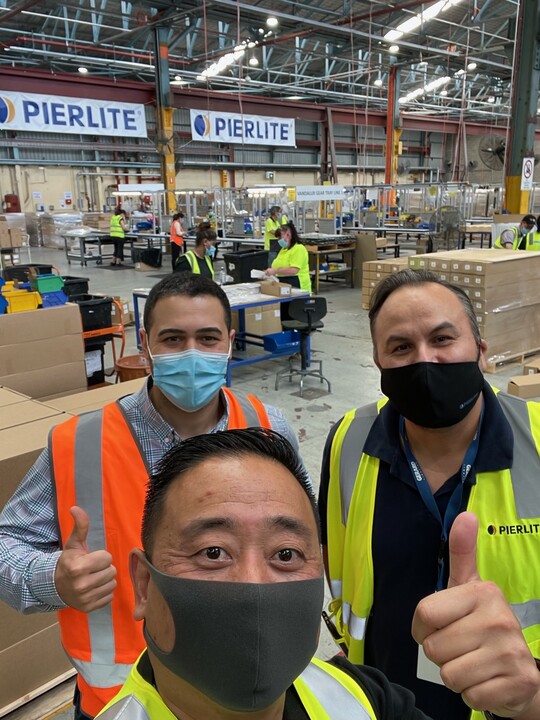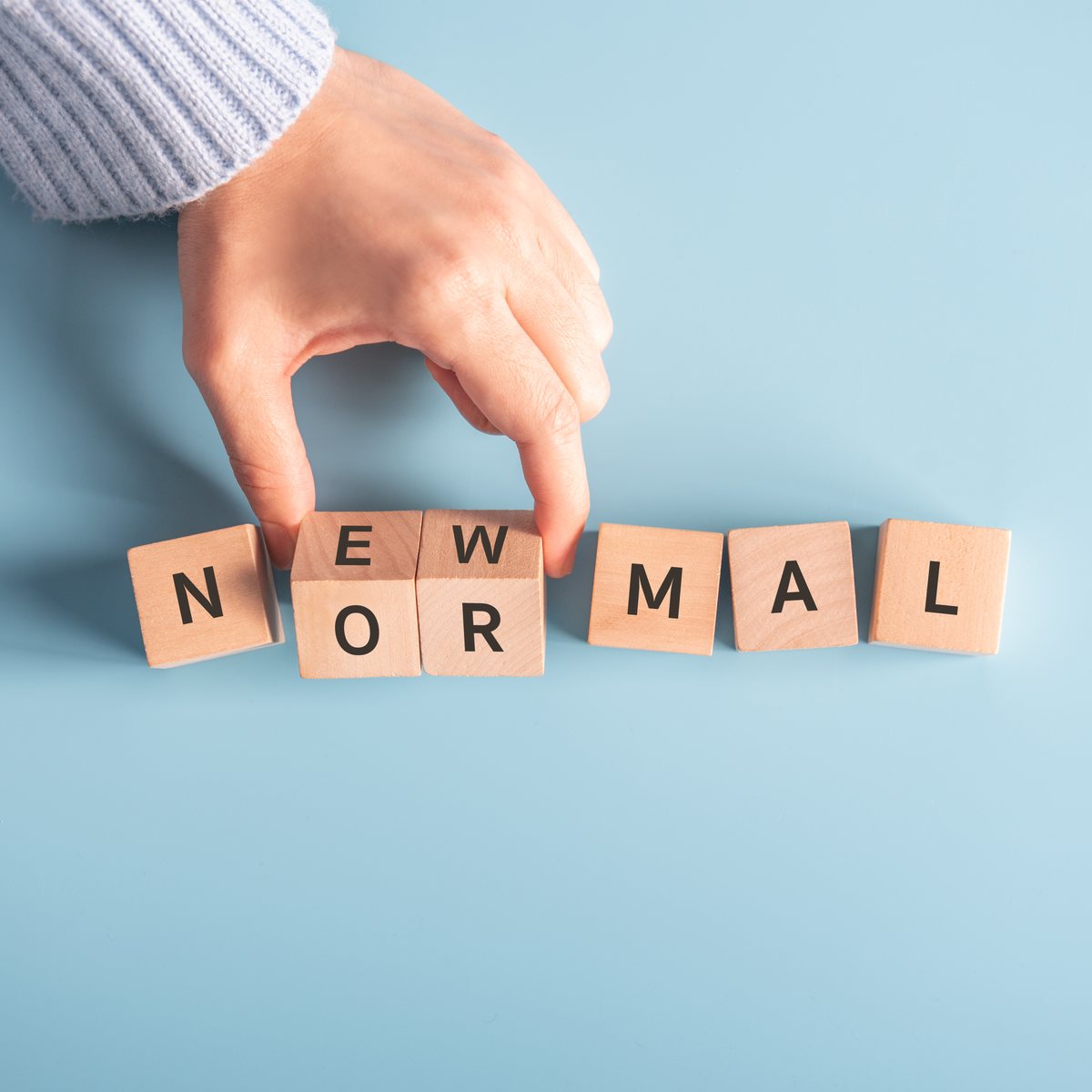and team’s engagement
peaked over lockdown.
Here’s why.
Humans are social creatures. Yet, during the COVID-19 pandemic, many of us have gone from seeing our colleagues at work every day to working from our homes. Now, remote work has become business as usual. But how does this affect us and the work we produce? As leaders and managers, what can we do to maintain our team’s work performance and happiness without physically seeing them?
I became CEO of Pierlite Australia and New Zealand in June 2020 – not long after parts of Australia first entered lockdown, starting the mass shift to remote work. Despite quarantines and lockdowns suddenly requiring us to work from home over the past year, Pierlite’s financial performance and employee engagement levels are at an all-time high. One of the key reasons we are able to thrive as a remote team is because we adapted our work practices to cater for remote working situations fast. When it comes to the work from home life, many managers have a vision of their employees being more relaxed and slacking off, enjoying naps, or hanging out with their families during the workday. The truth is, working from home is hard! And as leaders, it’s up to us to acknowledge how remote work may be taking a toll on our team.


Keeping your purpose alive
A study by Deloitte found that employees need to feel engaged in meaningful work or they will leave the company. I believe that having clarity of your company’s purpose plays a huge role in creating meaningful work. While a company’s purpose is usually fresh in an employee’s mind on their first day at the job, we also need to focus on continually reminding our team of what we’re here to do and how all of us collectively contribute to our company’s purpose. In the office, these reminders of our purpose could come in the form of posters, noticeboards, team chats, and impromptu meetings, or even just from seeing everyone working together and accomplishing small wins throughout the day.
Maintaining a clarity of purpose in a remote team can be challenging, but it is certainly not impossible. An engaged team is driven by its purpose. Therefore, it’s crucial to ensure your remote team has opportunities to engage with each other and communicate amongst themselves to maintain a sense of team rapport and purpose. At Pierlite, we take every opportunity we can get to keep our team engaged. We’ve organised face-to-face parties and catch ups, between lockdowns, when it has been safe to socialise.
Team events don’t always need to be in celebration of anything in particular. In my personal life, I celebrate my loved ones whenever I feel like it – regardless of whether it’s a birthday, anniversary or Christmas. I’ll buy gifts or plan a dinner for a loved one on a random Wednesday in March when there are no special dates coming up. It’s about showing gratitude and appreciation when I feel it. The same goes for organisations. We need to celebrate with our team even on ordinary days of the year. We need to demonstrate our appreciation for them when it is not required of us. Many organisations wait for Christmas, end-of-year awards, or financial results to come through to have a party. At Pierlite, we celebrate our team whenever we feel like we should.
I’ve talked before about the four essential happiness chemicals humans need to function at their best – dopamine, oxytocin, endorphins, and serotonin. In the office, we encourage the production of these chemicals by hosting initiatives such as social gatherings, exercise activities, and fun events. But how do we manage our team’s happiness when they’re all working from their individual homes? For one, our exercise and movement activities haven’t stopped just because we’re not working in the office. Pierlite funds digital fitness classes for any employee that is interested. We also host meditation classes over Zoom. Our team also knows that during company meetings and calls, they are more than welcome to go on a walk or go outside and soak in some sun while on the call.
Not only do these initiatives improve our team’s happiness and wellbeing, but they are also a signal of the trust that Pierlite’s management team and I have in our employees. I have never believed in micromanagement because I trust my team.
With a remote team, some managers may be tempted to closely monitor their employees to make sure they’re being productive. However, some experts believe that micromanagement decreases a team’s morale as it creates a tone of distrust between you and your team. Additionally, contrary to the myth of employees slacking off when working from home, data has shown that remote workers are actually doing more work, not less. One study found that almost 70% of remote professionals did extra work on weekends, while a global study discovered that the average workday increased by 8.2% when the pandemic started. As a remote CEO managing an international company, I for one am definitely finding working from home harder than working in the office.


Rather than focusing on how your employees are spending each minute of their workday, check ins with your team should be about connecting with them, supporting them, and communicating openly. Working from home can be hard, and everyone wakes up with their own unique set of challenges. Whether your employees are trying to work with children running around the house or with noisy construction going on next door, our job as leaders is to trust that they are trying their best in their situation and focus on their health, safety, and wellbeing.
To nurture the wellbeing of our employees, Pierlite has banned meetings between 12 pm to 1 pm and after 4 pm. Why? Because this helps ensure that people don’t work during their lunch break and aren’t stuck in meetings that bleed into post-work hours. Reports show that in 2020 and 2021, time spent in meetings has more than doubled as we grapple with remote work life. Everyone needs a break to maintain work performance and reduce stress, especially when working from home where the boundaries between work and home time are blurred.
Digitising the remote workplace
It’s no secret that working from home means a higher dependency on technology. While most of us are familiar with messaging and video meeting platforms, we cannot overlook the importance of also having fully digitised work management processes that will support our team from home. In the modern world, successful organisations need to capitalise on advanced digital systems and metrics to help us understand where the team is at and align everyone’s activity on one platform.
Many companies purchase a subscription to a workplace organisation platform and leave it at that. However, simply having digital systems in place doesn’t guarantee their success. It’s up to your team to continually reassess what’s working for your employees and what isn’t.
At Pierlite, we’ve invested in a world-class CRM and digital metric systems that strongly support both our customers and team. To ensure our systems work well for our team, we have continually improved and reinvented our approach to online work management over the years and especially over the pandemic.


Incorporating digitised organisational systems and metrics isn’t an excuse to scrutinise your team’s shortcomings. When working remotely, there will inevitably be situations that your employees cannot control. I always aim to take over anything that others cannot control. For example, how can you measure someone’s revenue performance when the construction site is closed due to lockdowns? Instead, you can measure future projections and plans for the construction project. As leaders, we should be supporting our employees who are working from home by focusing on what they can do, rather than what they cannot do.
After almost two years of the COVID-19 pandemic, remote work has become the norm for millions of workers around the globe. Yet, many organisations are still figuring out how to improve employee performance, engagement, and happiness. As a CEO managing hundreds of people from home, I understand your struggle! However, it’s clear that when organisations, like Pierlite, adapt how we work to better suit our team, our work performance can beat the odds and come out stronger than ever before.
Gustav Arianto, CEO – Pierlite ANZ
